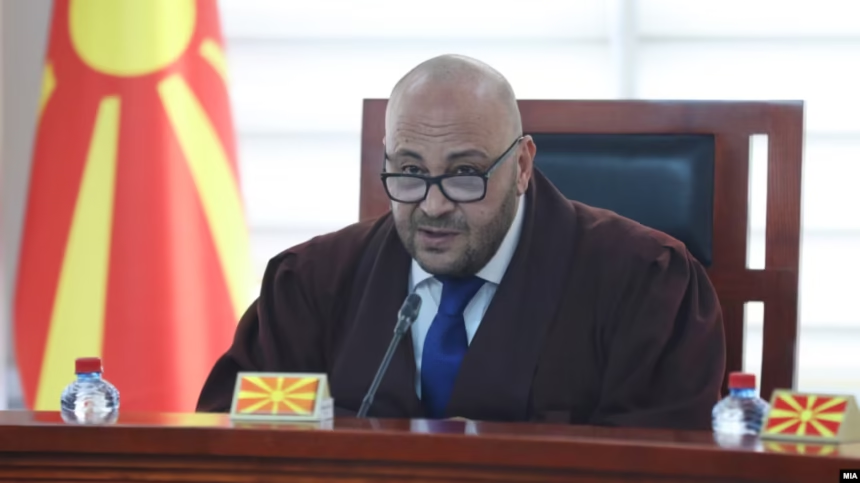The fate of North Macedonia’s controversial Law on the Use of Languages will be decided only after this autumn’s local elections, according to Darko Kostadinovski, President of the Constitutional Court of North Macedonia.
In an interview with Triling, Kostadinovski confirmed that a preliminary session is scheduled for June 19, delayed previously due to the Kočani tragedy. He emphasized the court’s intention to avoid ethnic and political tensions by postponing the final decision until after the elections.
“My estimate is that the final decision will come post-elections. Were it not for the tragedy, the session would have already concluded, and a ruling would likely follow in June,” he explained. He added that a new summary report and consensus will require an additional 1 to 2 months of work after the June session.
Kostadinovski assured the public that there is no cause for fear, stressing that no one’s rights are under attack, and warning against politicizing the process. He argued that ethnic relations are not the issue—but rather, the manipulation of ethnic topics for political purposes is.
Reactions from Albanian Political Parties
The decision to delay sparked strong backlash, especially from Albanian opposition parties.
The Democratic Union for Integration (DUI) accused the Court of bias and political collusion, claiming it acts as a “parapolitical arm of the current government.” They warned that delaying the decision is part of a coordinated effort to undermine the Ohrid Framework Agreement and the progress of Albanian rights in the country.
“This is a well-orchestrated plan to maintain a political project among Albanians using illegitimate representatives, and later to strike at the achievements made through the Ohrid Agreement,” DUI declared.
DUI’s Vice President, Bujar Osmani, framed the upcoming elections as a referendum on the Albanian language, civil equality, and the country’s democratic trajectory, warning against a “masked regime” that uses the judiciary to suppress minority identity.
In response, the Albanian coalition ‘Vlen’ (Worth It) countered that DUI’s outrage stems from a failed scheme to sabotage the Language Law through loyal Constitutional Court judges.
“Ali Ahmeti and Bujar Osmani’s plan to destabilize the country by endangering the Albanian language has collapsed. The Albanian language is not up for negotiation,” Vlen stated, promising to defend Albanian rights without compromise.
Venice Commission and Expert Involvement
The Constitutional Court previously agreed on December 11, 2024, to hold a preparatory session regarding multiple legal challenges to the Law on the Use of Languages.
Kostadinovski announced that five or six contentious points have been identified and that the Court will seek expert consultations, including input from the Venice Commission, a European Court of Human Rights judge, and specialists in minority rights, alongside local constitutional and human rights experts.
The autumn election date has not yet been fixed, but Parliament Speaker Afrim Gashi expects elections to be called in late July or early August.







